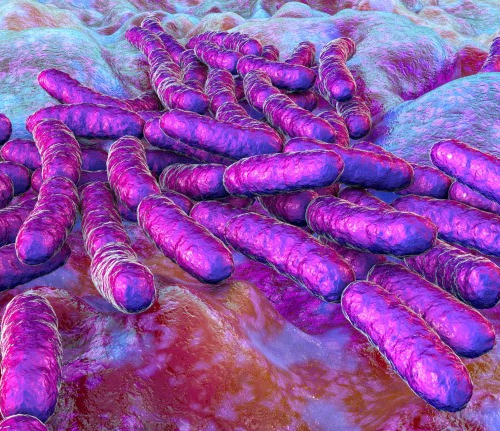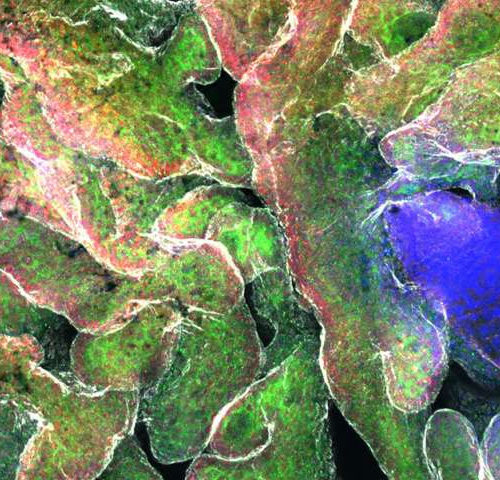The discovery of lactate-producing, resistance-building bacteria inside tumours could be exploited for future treatments. Nature Research Custom MediaMD AndersonBacteria within the tumour microbiome can adapt to produce nutrients that allow cancer cells to resist treatment, researchers have found.Credit: Kateryna Kon/ Science Photo Library/ Getty Images Unlike the usual energy-release pathways in normal cells, cancer cells...
Tag: <span>tumour</span>
Known tumour suppressor gene found essential for development, regeneration & stress-response
INSTITUTE FOR RESEARCH IN BIOMEDICINE (IRB BARCELONA) IMAGE: MUTATIONS OF THE HEADCASE GENE (LOWER PANELS) RESULT IN ABERRANT CELL GROWTH AND ENLARGEMENT OF CELLULAR STRUCTURES AS THE NUCLEOLUS, MARKED HERE IN MAGENTA. GREEN AND GREY MARK CELL MEMBRANES AND DNA RESPECTIVELY. CREDIT: (GIANNIOS, IRB BARCELONA) Adult progenitor cells are present in the Drosophila fly as early as...
How mechanical forces nudge tumors toward malignancy
by Katherine Fenz, Rockefeller University Epidermal stem cells (green) form small bud-shaped structures that later become tumors. Credit: Laboratory of Cell Biology and Development at The Rockefeller University All cancers are the result of cells that have gone haywire, multiplying out of control and expanding beyond their normal constraints. But not all tumors are the...
Are all cancer cells the same?
Take two cancer cells and compare their genomes. Surprisingly, they can be quite different. This genetic variation is one of the hallmarks of cancer, and one reason why treating cancer is so hard. Credit: CC0 Public Domain If a tumour is made up of cells with many different genomes, a single drug might not kill...
Cutting-edge cancer drug ( Keytruda ) hobbled by diagnostic test confusion -pharmaceutical
Physicians struggle to identify which patients are likely to respond to a recently approved therapy. Cancerous cell growth (orange) in the colon. A landmark cancer drug approved last year seemed to herald a long-anticipated change in the treatment of some tumours: with medicines selected on the basis of molecular markers, rather than the tissue in...
Hope for thousands of women with ovarian cancer: Landmark trial shows new drug shrinks tumours in terminal stages of the illness
BTG945 drug significantly reduced tumours in seven out of 15 women Researchers will today unveil the preliminary findings at a Chicago conference Unlike most gruelling cancer therapies, there are very few side effects Thousands of women with ovarian cancer could be helped by the most promising new drug in a decade, British scientists claim. The...
Will we soon have a jab for prostate cancer? Experts unveil a vaccine that could provide a cure for the disease
Vaccine that treats the disease by stimulating the immune system is being tested Jab stopped tumours from spreading for 77% of cancer patients in the trial And 45 per cent of patients in the clinical trial experienced tumour shrinkage Prostate cancer is one of the most common cancers, affecting one in seven men A vaccine...
A lead candidate for immunotherapy may increase tumour growth in certain cancers
Boosting a part of the immune system known to have anti-tumour properties may actually help tumours grow in cancers linked to chronic inflammation. Cancer immunotherapies boost aspects of the body’s normal immune system, to help fight tumours. They are part of a fast-evolving field of research and medicine, with several types of immunotherapies currently...
A blood test for cancer? Simple liquid biopsy could identify where in the body a tumour exists
Current blood tests are showing some promise for detecting cancer in patients But one major problem is that these don’t indicate where the tumour resides The new method relies on a process that controls how genes are expressed So it can pick up the signs of tumours – as well as where in the body...



